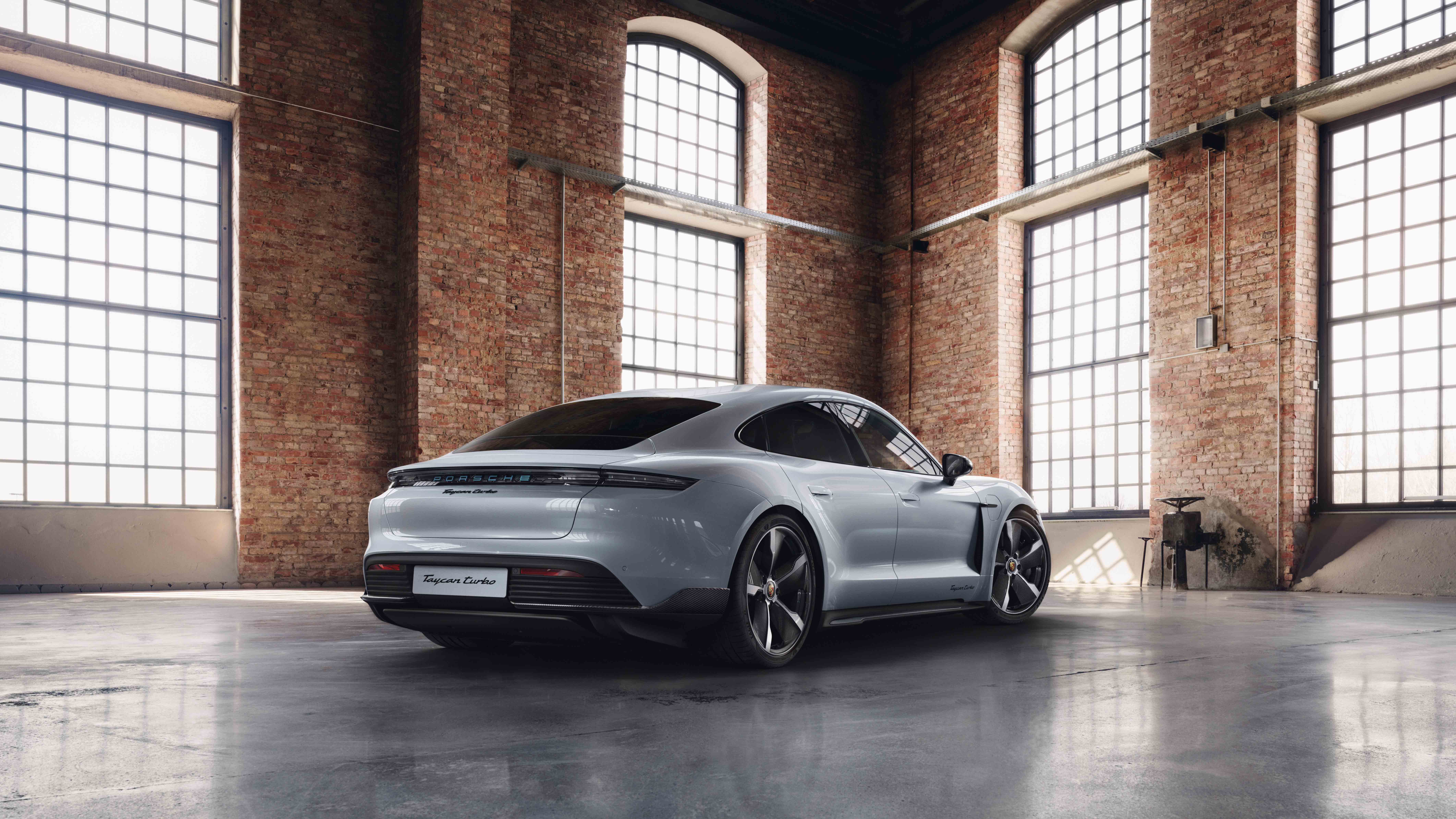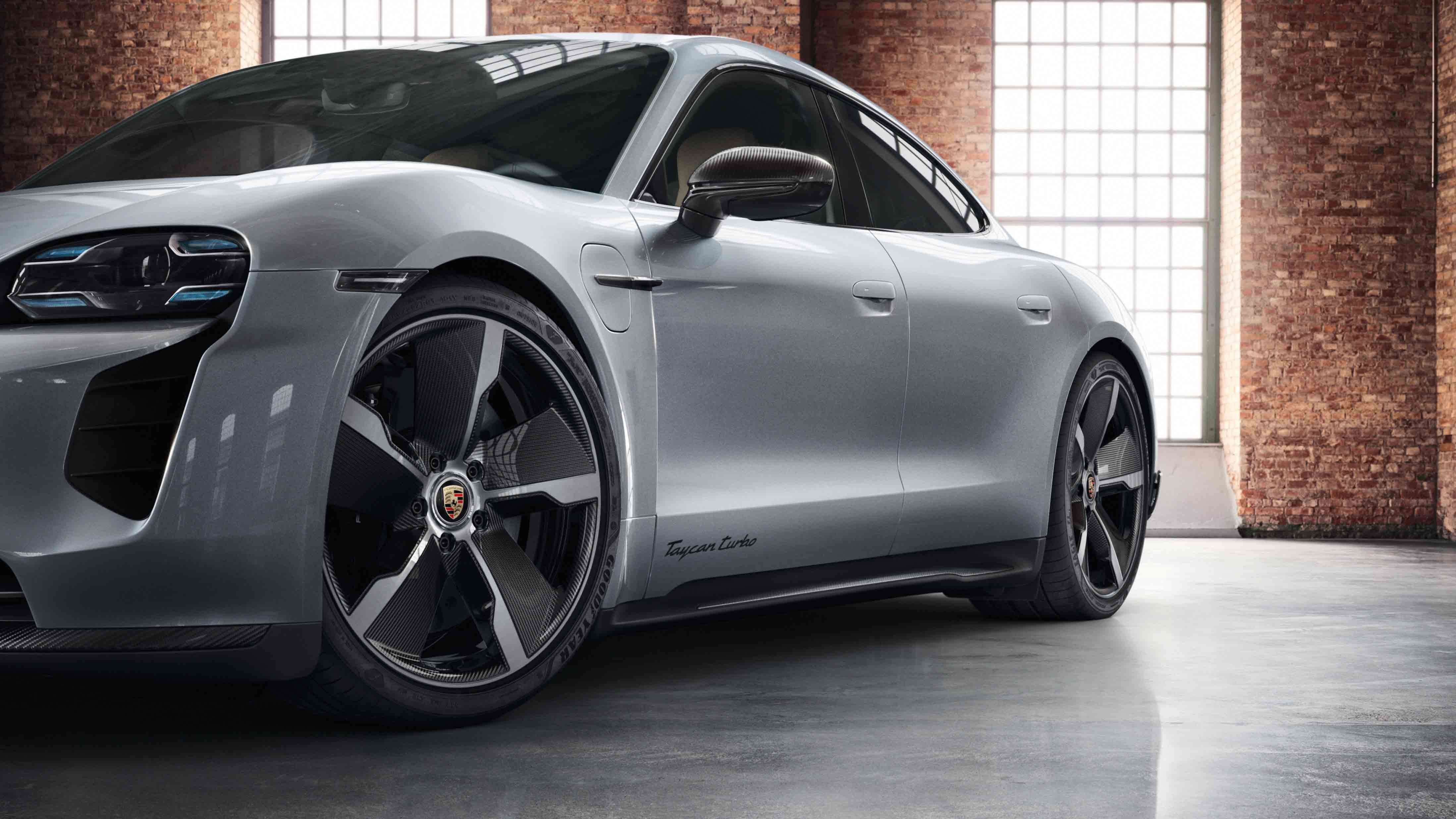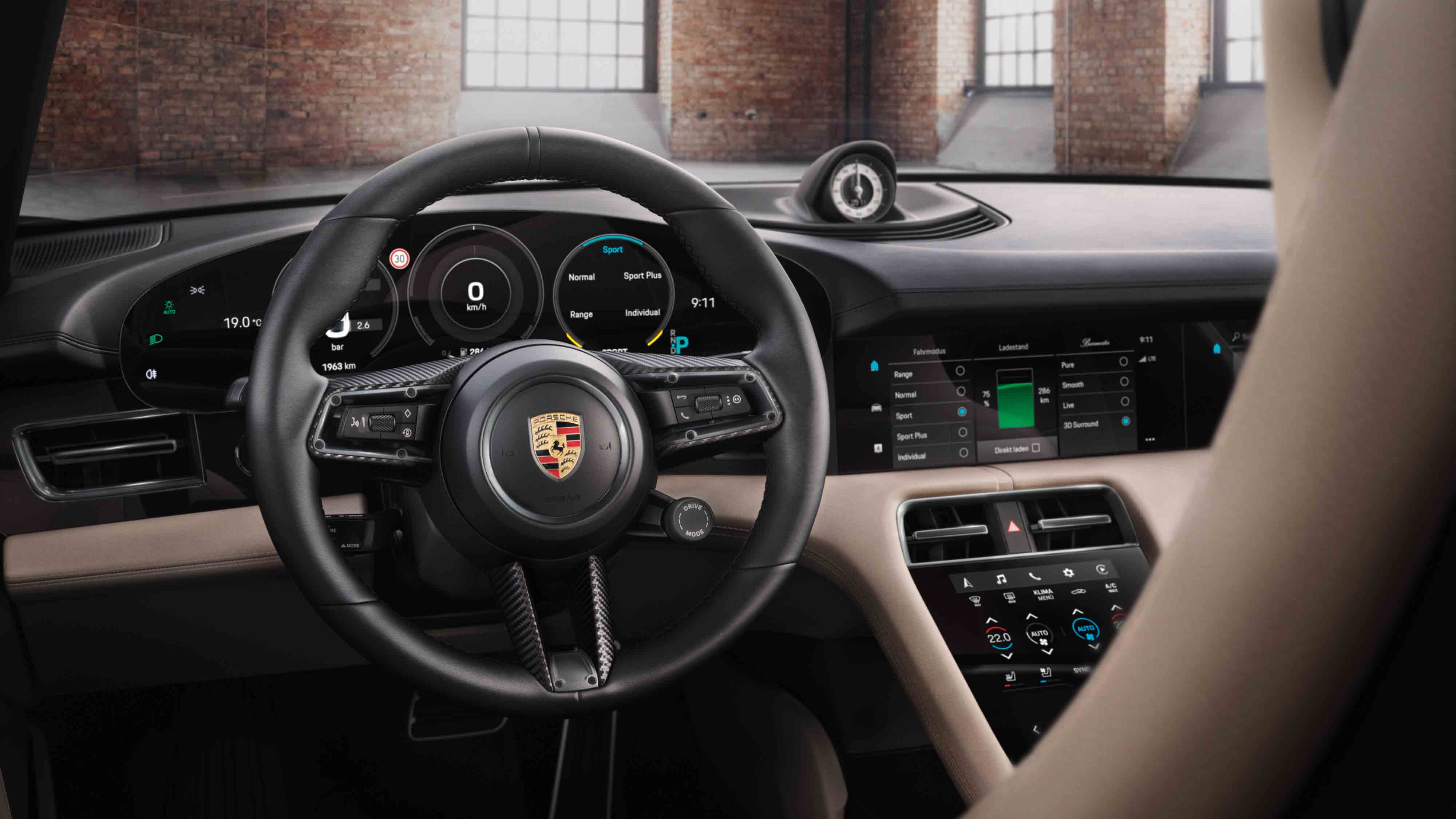Porsche Taycan Turbo shows the seductive side of EVs
Despite its size and weight, the car rides and turns like a true sports car, a faintly magical achievement

Receive our daily digest of inspiration, escapism and design stories from around the world direct to your inbox.
You are now subscribed
Your newsletter sign-up was successful
Want to add more newsletters?

Daily (Mon-Sun)
Daily Digest
Sign up for global news and reviews, a Wallpaper* take on architecture, design, art & culture, fashion & beauty, travel, tech, watches & jewellery and more.

Monthly, coming soon
The Rundown
A design-minded take on the world of style from Wallpaper* fashion features editor Jack Moss, from global runway shows to insider news and emerging trends.

Monthly, coming soon
The Design File
A closer look at the people and places shaping design, from inspiring interiors to exceptional products, in an expert edit by Wallpaper* global design director Hugo Macdonald.
The Porsche Taycan is the electric car du jour, the Tesla challenger that just happens to be a debut foray into full electrification by the world’s most famous sports car manufacturer. Can Porsche keep its fabled ethos and image alive by eschewing the internal combustion engine? That depends very much on your personal opinion. If you fervently believe in the romance and visceral attraction of burning fossil fuels to generate motion, no amount of elegant design, smooth operation and even dynamic brilliance will change your mind. However, you’re one of a dwindling band of aficionados and the writing is on the wall for your beloved power source. For cars to survive in any kind of familiar form, the switch to zero emissions must be complete and irreversible.
This bitter pill has already been swallowed by practically every car maker on the planet, whether they specialise in million-dollar luxury conveyances or compact vans for serving up street corner cappuccinos. The only difference is how far down this road each company has managed to get. Right now, Porsche finds itself at the head of the pack of established automotive names. The Taycan range has already become a core part of the company’s offering, with four distinct models starting the Turbo S at the top of the tree. There’s also a Turbo, the 4S model and an ‘entry-level’ rear-wheel drive model, which starts at £70,690 in the UK. The Turbo S crams in the most performance, as you’d expect, while opting for the ‘standard’ Taycan with the bigger of the two battery options gives you the longest range, 301 miles. The Turbo sacrifices some of that range for speed, with a max range of 281 miles.

The Porsche Taycan Turbo uses a new detail design language to emphasise its electrical powertrain
Porsche has pushed hard to make range anxiety a thing of the past, joining the IONITY network of European high-speed chargers and being cleverly conservative with its figures. The problem is the brand’s innate emphasis on performance. The Satanic pact required with all contemporary electric cars is that even though exceptional acceleration is a given, there is an inevitable and immediate trade-off with range. Finding a sweet spot between the two is a challenge for the engineer and a daily dichotomy for the driver. Deploy the Turbo’s 3.0 second sprint to 60mph a few times in a row, or hit the 161mph top speed on an autobahn, and the projected range evaporates. Instead, you’ll find yourself driving smoothly and defensively, eking out the power of every last electron. This is no bad thing, of course, but it turns driving the Taycan into an either/or prospect – are you going to enjoy the performance or maximise your range? That’s the conundrum that a dedicated sporting brand like Porsche has to solve, especially as EV versions of its more sport-focused models come into being.
One area that every version of the Taycan excels is the driving experience. Despite its size and weight, the car rides and turns like a true sports car, a faintly magical achievement given the gravitational forces at play. It’s testament to the company’s engineering prowess that the transition from the spirited verve of the internal combustion engine to electric motors is handled so skilfully. Every other manufacturer in this sector is watching carefully and hoping to learn. Porsche’s interior and exterior design skill have also stepped up their game, creating a car that is as pleasant to sit in as it is to look at. It doesn’t shout, either visually or audibly, and front and back seats are equally great places to sit.

The Porsche Taycan interior is a superb place to sit
Big, luxurious fast cars still dominate the nascent EV market because proper range needs big, expensive batteries. Performance is a by-product, and that’s always been expensive. An architectural analogy would be the near-total absence of supersized affordable housing; if you’re going to build a 5,000 sq ft house, then it would be madness not to cram it full of every available creature comfort, from wine cellar to wellness centre, Bulthaup kitchen to fitted wardrobes. The Taycan Turbo S is that monster house and Porsche is not shy about having an expensive option list to raise the specification even further. Porsche’s next EV won’t change this dynamic. The Taycan Cross Turismo offers a more practical body style with better ground clearance. As a half-way house between super saloon and performance SUV it should be without compromise. That is, until you put your foot down.
INFORMATION
Porsche Taycan Turbo from £115,860.00, as tested, £139,252.00
Receive our daily digest of inspiration, escapism and design stories from around the world direct to your inbox.
Jonathan Bell has written for Wallpaper* magazine since 1999, covering everything from architecture and transport design to books, tech and graphic design. He is now the magazine’s Transport and Technology Editor. Jonathan has written and edited 15 books, including Concept Car Design, 21st Century House, and The New Modern House. He is also the host of Wallpaper’s first podcast.